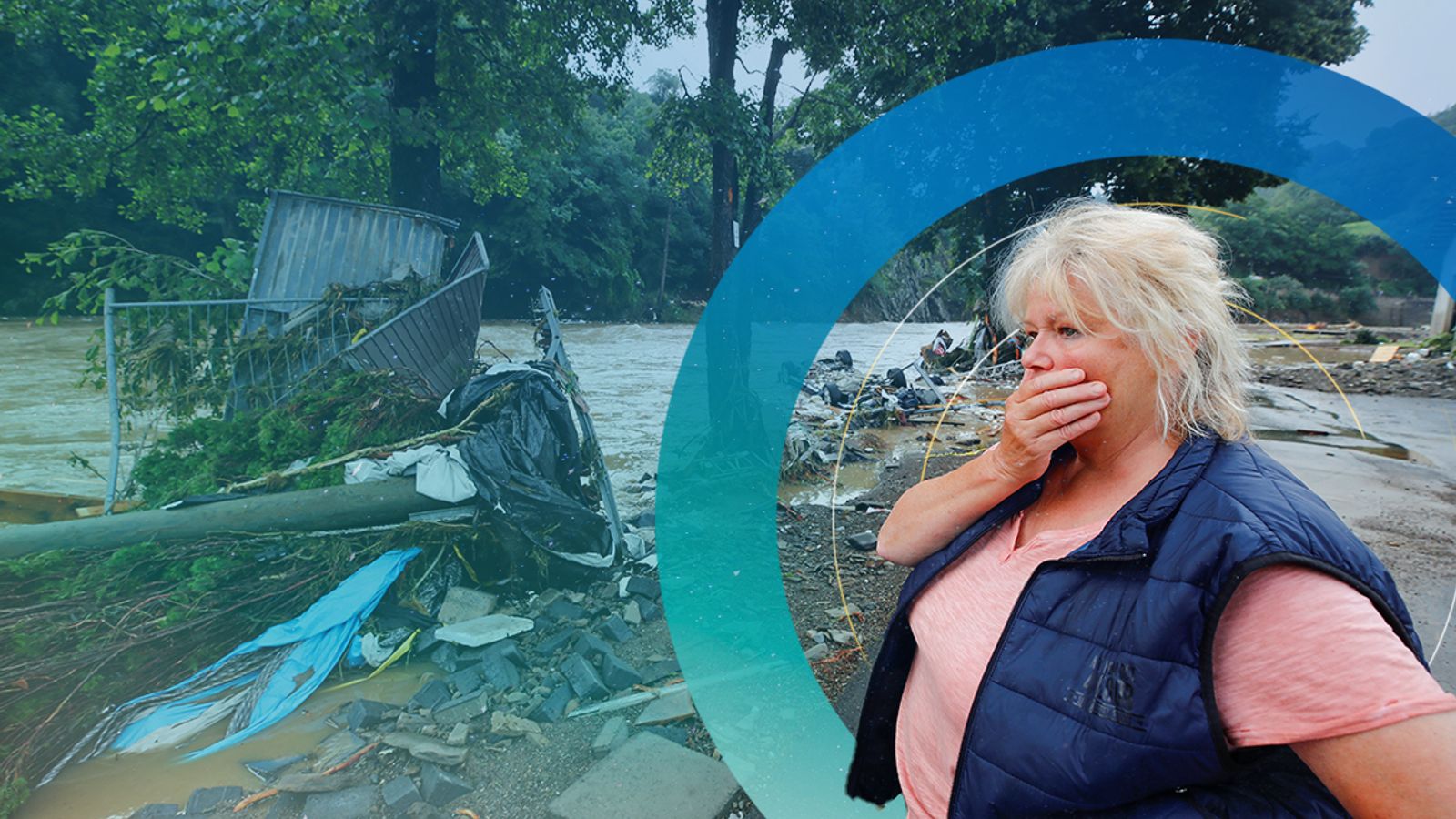The German government has been accused of “pure play hypocrisy” for complaining of the impacts of climate change brought by this week’s catastrophic flooding while signalling support for a new gas project in the Arctic.
Germany‘s interior minister Horst Seehofer has directly labelled the “extreme weather” that has already killed at least 100 people and devastated homes as a “consequence of climate change” – and the environment minister Svenja Schulze yesterday declared “climate change has arrived in Germany”.
Yet their government is considering committing $300m (£216m) towards a Russian-led liquefied natural gas (LNG) project in the Siberian Arctic, known as Arctic LNG II.
Europe’s flooding crisis – follow live updates
Environmentalists fear LNG, though cleaner than crude and coal, would not only increase global emissions that fuel climate change, but also drive up shipping in the pristine marine environment.
Marie Toussaint MEP is one of 39 signatories to a letter in May urging Germany – as well as France and Italy – to ditch the plans on climate and human rights grounds.
The green politician told Sky News: “Arctic LNG II is a concrete example of the hypocrisy of some of our leaders. The disasters in Germany and Belgium show us that climate change is here and now, and that it is urgent to act.”
France and Italy, which have also ratified the Paris Agreement that aims to lower emissions and limit global warming to 1.5C, are considering subsidising the project with even greater sums, also via their export credit agencies.
“French, Italian and German governments must stop the policy of ‘at the same time’, and have to take action,” added Ms Toussaint.
Regine Richter, from German environmental NGO Urgewald, said: “Complaining about climate change and the damage it does while supporting a new gas project in the arctic is pure play hypocrisy.”
“If Germany supports the project through an export credit guarantee it is blatantly contradicting any climate ambition proclaimed by the government,” she added.
The project is scheduled to launch in 2023 and produce almost 20 million tonnes of LNG a year by 2026. Its international backers include French oil giant Total.
Pointing to the fact the licence could run until 2120, Ms Richter said: “Supporting this is outrageously against all climate targets. It means basically saying good bye to the Paris Agreement.”
She added: “Apart from that, the project has serious effects on the indigenous herders living on the Yamal peninsula, while any public scrutiny is practically impossible since the area is under control of the regional government and the companies doing the exploiting there.”
:: Subscribe to ClimateCast on Spotify, Apple Podcasts, Spreaker
In April, Germany and France launched a coalition of countries committed to decarbonising export finance – of just the sort they are considering for the Arctic.
According to a leaked document, the LNG is primarily intended for Asia.
It had been expected that the German Ministry of Economic Affairs and Energy would make a decision yesterday.
A spokesperson for the ministry said: “The application is still being examined in accordance with the existing regulations. Decisions have not yet been made.”






















